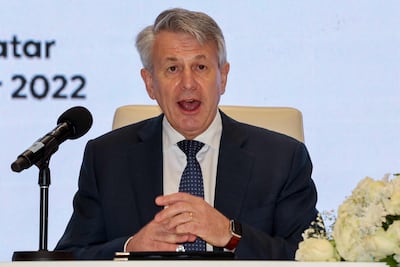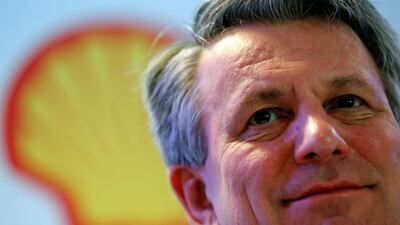Shell's chief executive Ben van Beurden has said he regretted not acting earlier on two problems linked to the environment, as he prepares to step down after nearly a decade in charge.
Mr van Beurden said he should have acted in 2015 on data coming out of the Groningen gasfield in the Netherlands.
“There’s a few regrets … not in the sense that I made the wrong decisions, but more often that I made them perhaps — with the benefit of hindsight — a little bit too late,” he said on Thursday, after his business made the second-highest quarterly profits on record.
“I wish that some of the things that we had as emerging insights in 2015 I had acted on earlier, rather than waiting until 2017 to act on them."
Shell and its partner Exxon reduced their production from the Dutch oilfield in the 2010s, but it took a long time for them to recognise the danger caused by the earthquakes it caused.
Mr van Beurden also spoke of points of pride, including lowering Shell’s emissions by about a third during his tenure.
He said that a third of the top 100 staff at Shell are women, compared with 17 per cent when he joined.
The board of directors includes women including Sinead Gorman as chief financial officer and company secretary Caroline Omloo.

“That might be another point of pride, the fact that we have been and are still the leading company when it comes to carbon management in the industry,” he said.
But Mr van Beurden said he had not acted soon enough on Shell’s controversial drilling in the Arctic.
After spending about $7 billion drilling off the coast of Alaska, the company pulled out in 2015 because of high costs and poor results from drilling.
“Another thing I think is a regret is the Arctic," Mr van Beurden said. "In the end we went out of it, but with the benefit of hindsight I look back on it and think, 'Couldn’t I have done that earlier and faster?'"
“So a mix of pride and regret — but I suppose that’s always the case after nine years.”
Shell said that the regrets were linked to financial problems in the Arctic and safety issues in the Netherlands.


